Презентація на тему «Charles Dickens» (варіант 2)
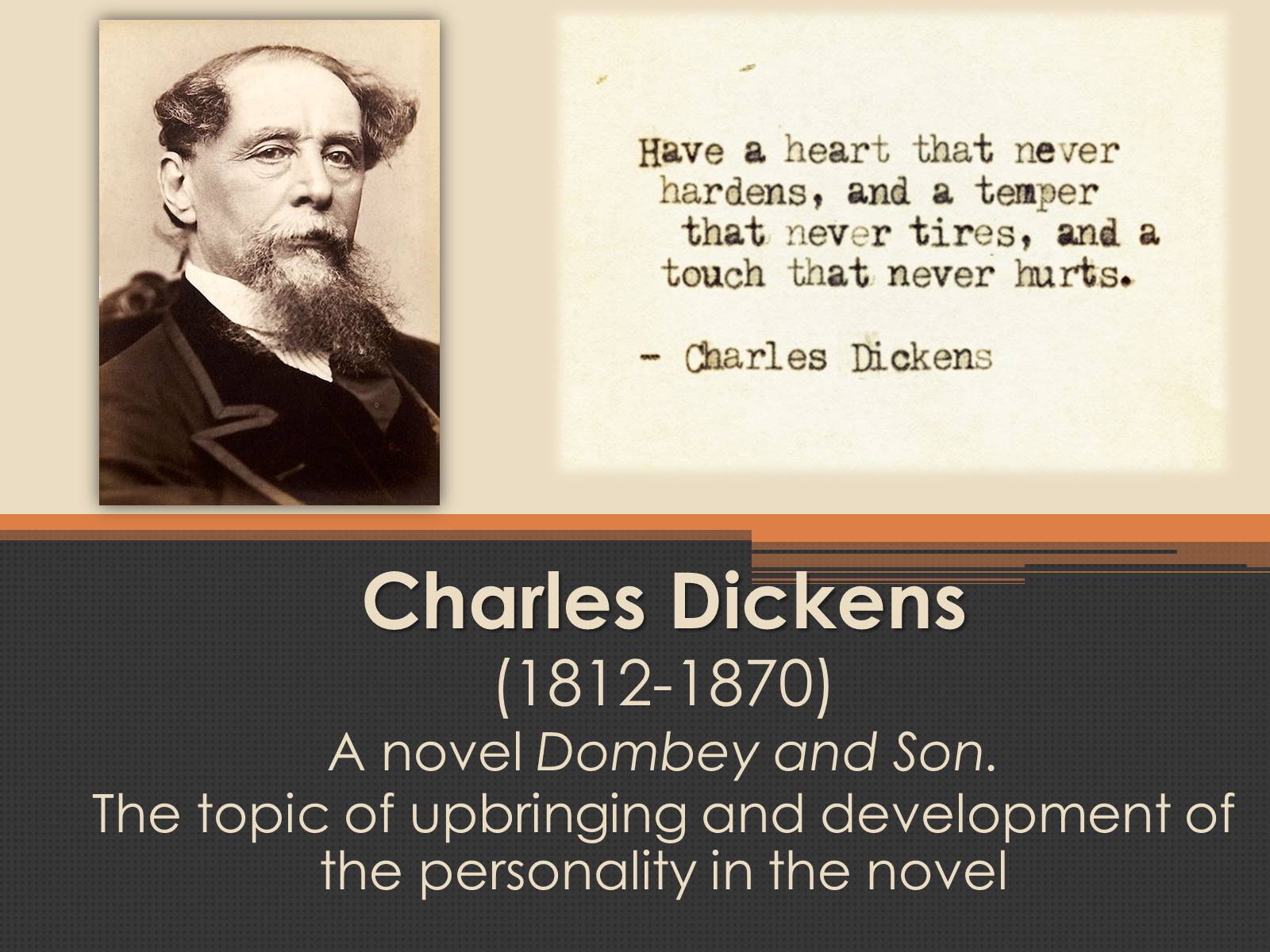
Charles Dickens
(1812-1870)
A novel Dombey and Son.
The topic of upbringing and development of the personality in the novel
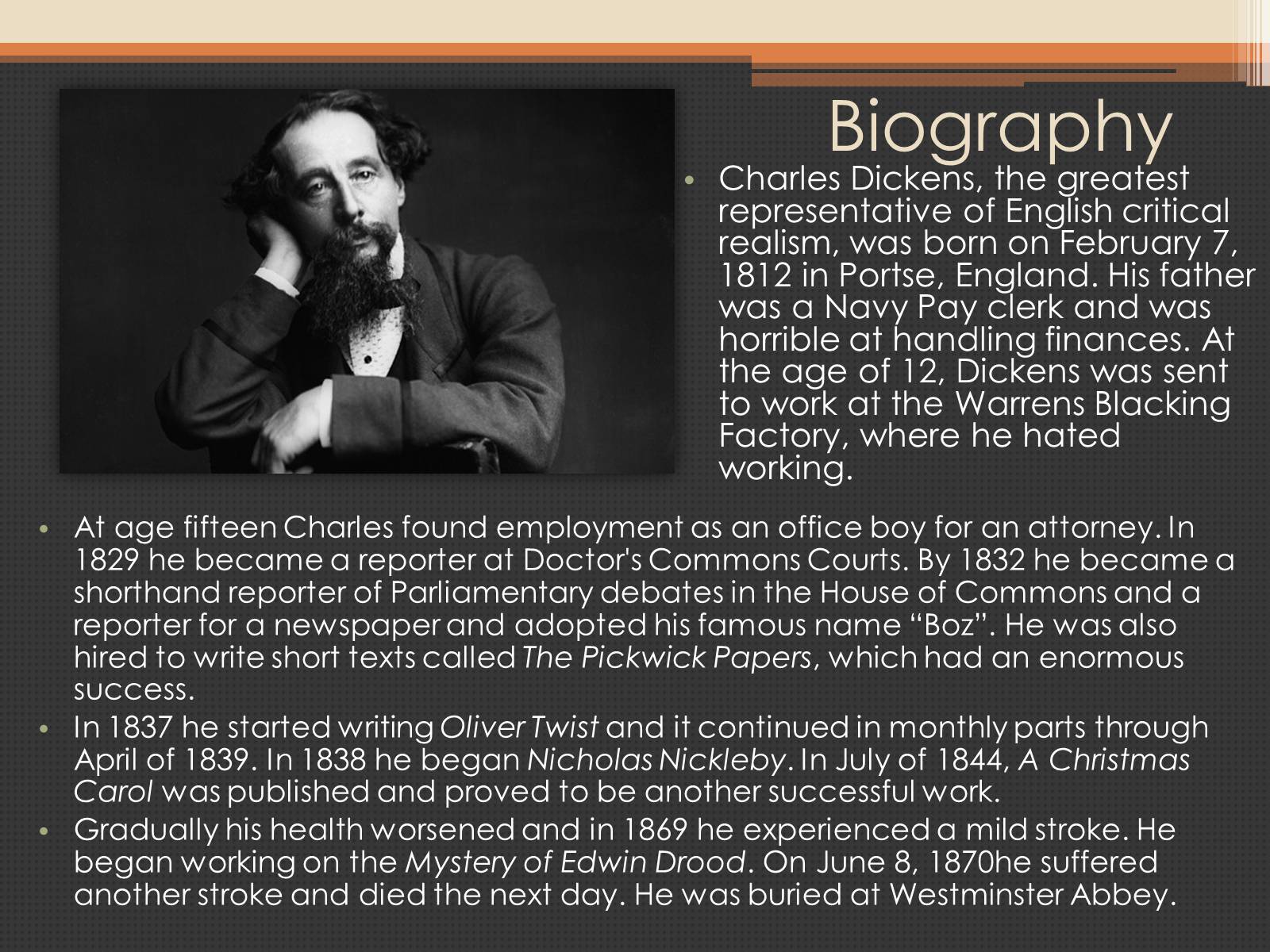
Biography
At age fifteen Charles found employment as an office boy for an attorney. In 1829 he became a reporter at Doctor's Commons Courts. By 1832 he became a shorthand reporter of Parliamentary debates in the House of Commons and a reporter for a newspaper and adopted his famous name “Boz”. He was also hired to write short texts called The Pickwick Papers, which had an enormous success.
In 1837 he started writing Oliver Twist and it continued in monthly parts through April of 1839. In 1838 he began Nicholas Nickleby. In July of 1844, A Christmas Carol was published and proved to be another successful work.
Gradually his health worsened and in 1869 he experienced a mild stroke. He began working on the Mystery of Edwin Drood. On June 8, 1870he suffered another stroke and died the next day. He was buried at Westminster Abbey.
Charles Dickens, the greatest representative of English critical realism, was born on February 7, 1812 in Portse, England. His father was a Navy Pay clerk and was horrible at handling finances. At the age of 12, Dickens was sent to work at the Warrens Blacking Factory, where he hated working.
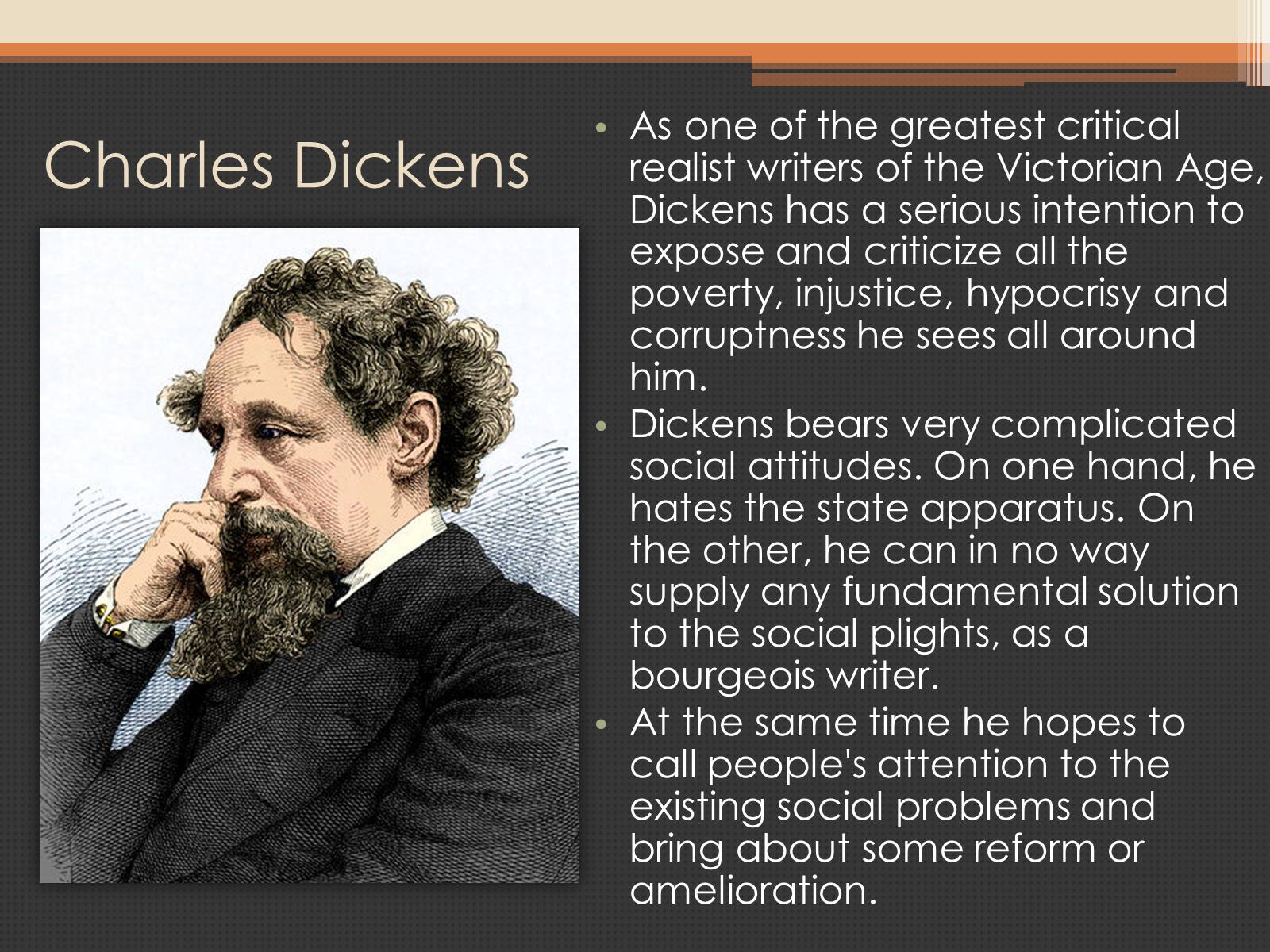
Charles Dickens
As one of the greatest critical realist writers of the Victorian Age, Dickens has a serious intention to expose and criticize all the poverty, injustice, hypocrisy and corruptness he sees all around him.
Dickens bears very complicated social attitudes. On one hand, he hates the state apparatus. On the other, he can in no way supply any fundamental solution to the social plights, as a bourgeois writer.
At the same time he hopes to call people's attention to the existing social problems and bring about some reform or amelioration.
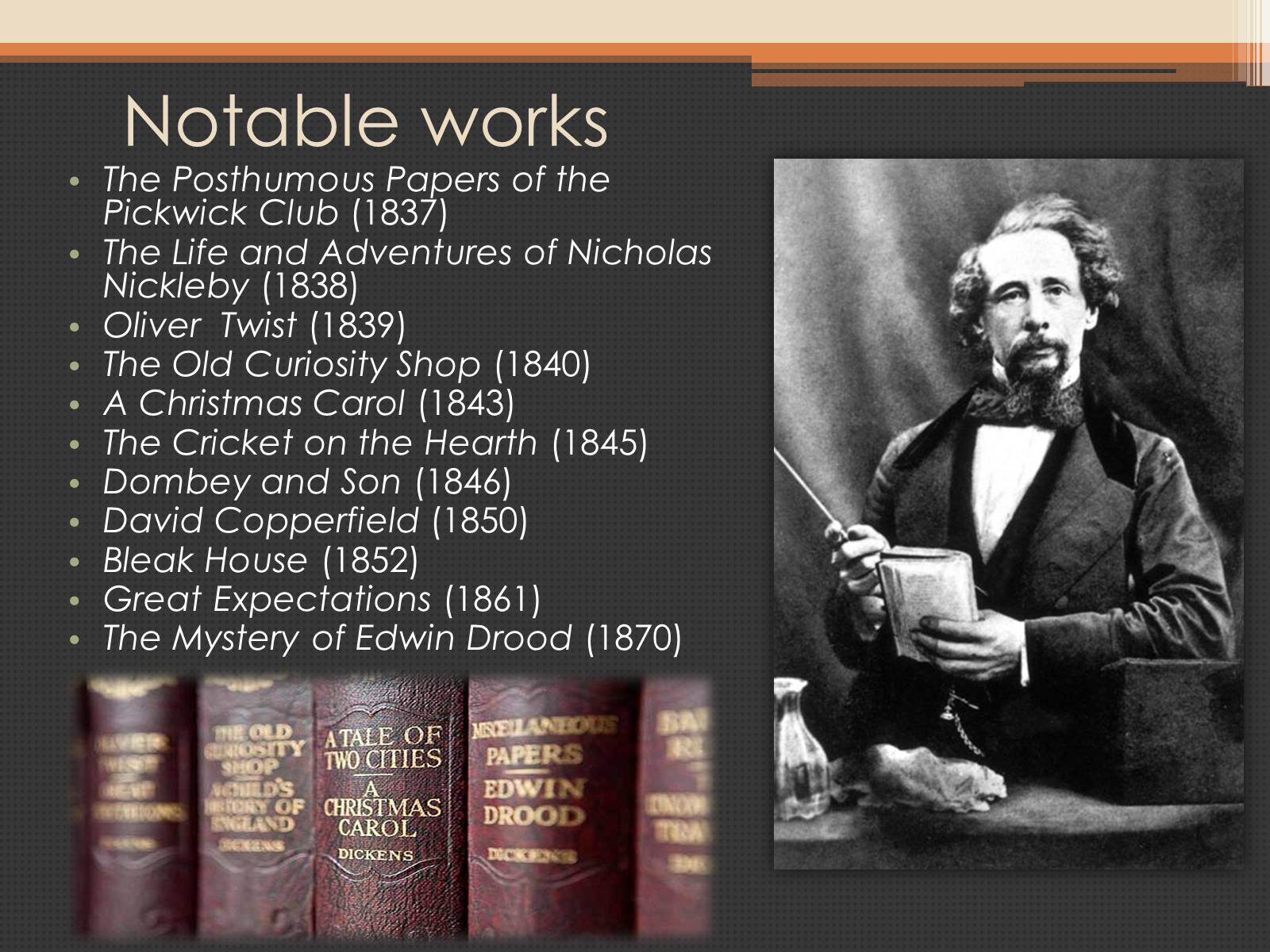
Notable works
The Posthumous Papers of the Pickwick Club (1837)
The Life and Adventures of Nicholas Nickleby (1838)
Oliver Twist (1839)
The Old Curiosity Shop (1840)
A Christmas Carol (1843)
The Cricket on the Hearth (1845)
Dombey and Son (1846)
David Copperfield (1850)
Bleak House (1852)
Great Expectations (1861)
The Mystery of Edwin Drood (1870)
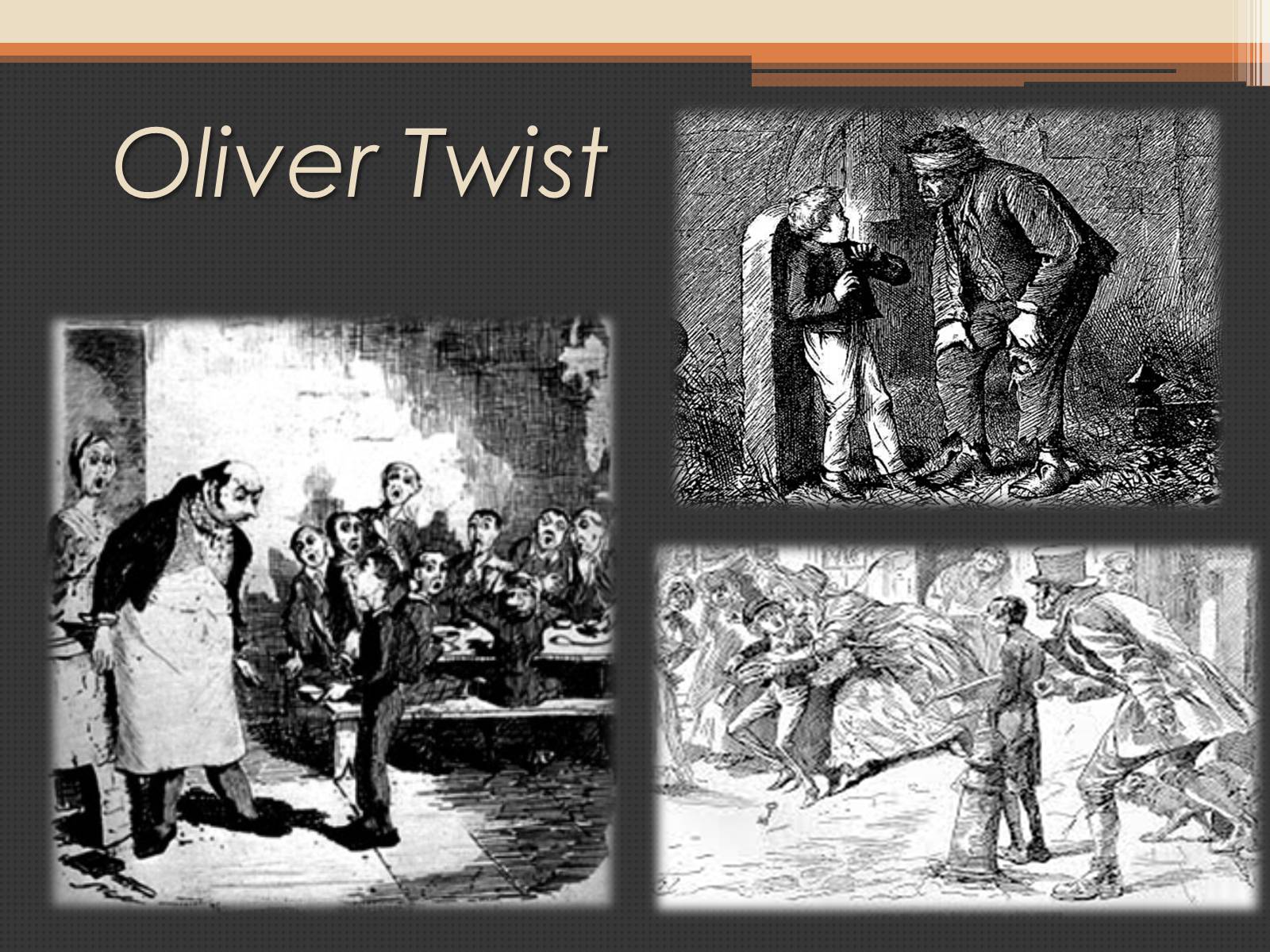
Oliver Twist
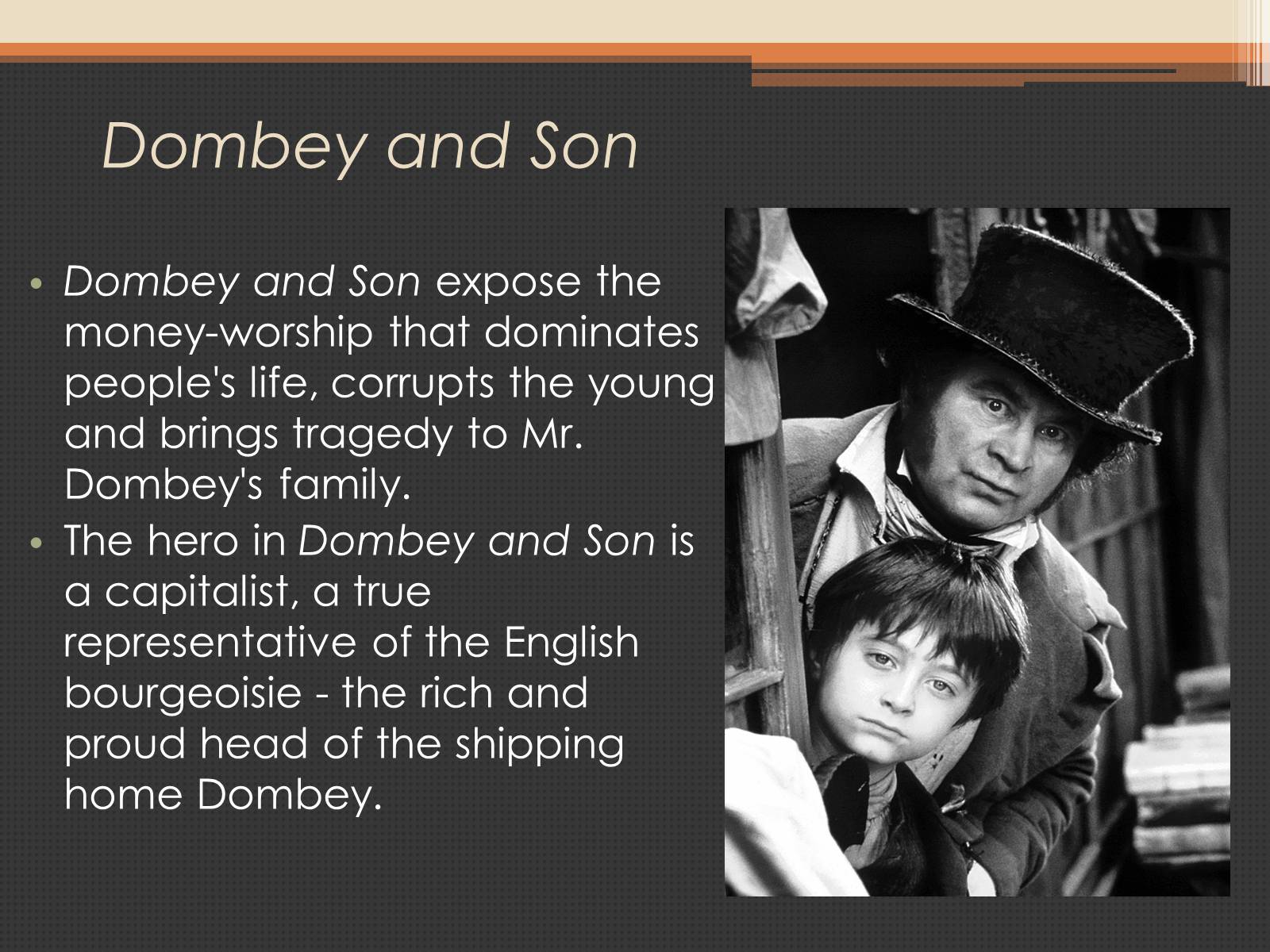
Dombey and Son
Dombey and Son expose the money-worship that dominates people's life, corrupts the young and brings tragedy to Mr. Dombey's family.
The hero in Dombey and Son is a capitalist, a true representative of the English bourgeoisie - the rich and proud head of the shipping home Dombey.
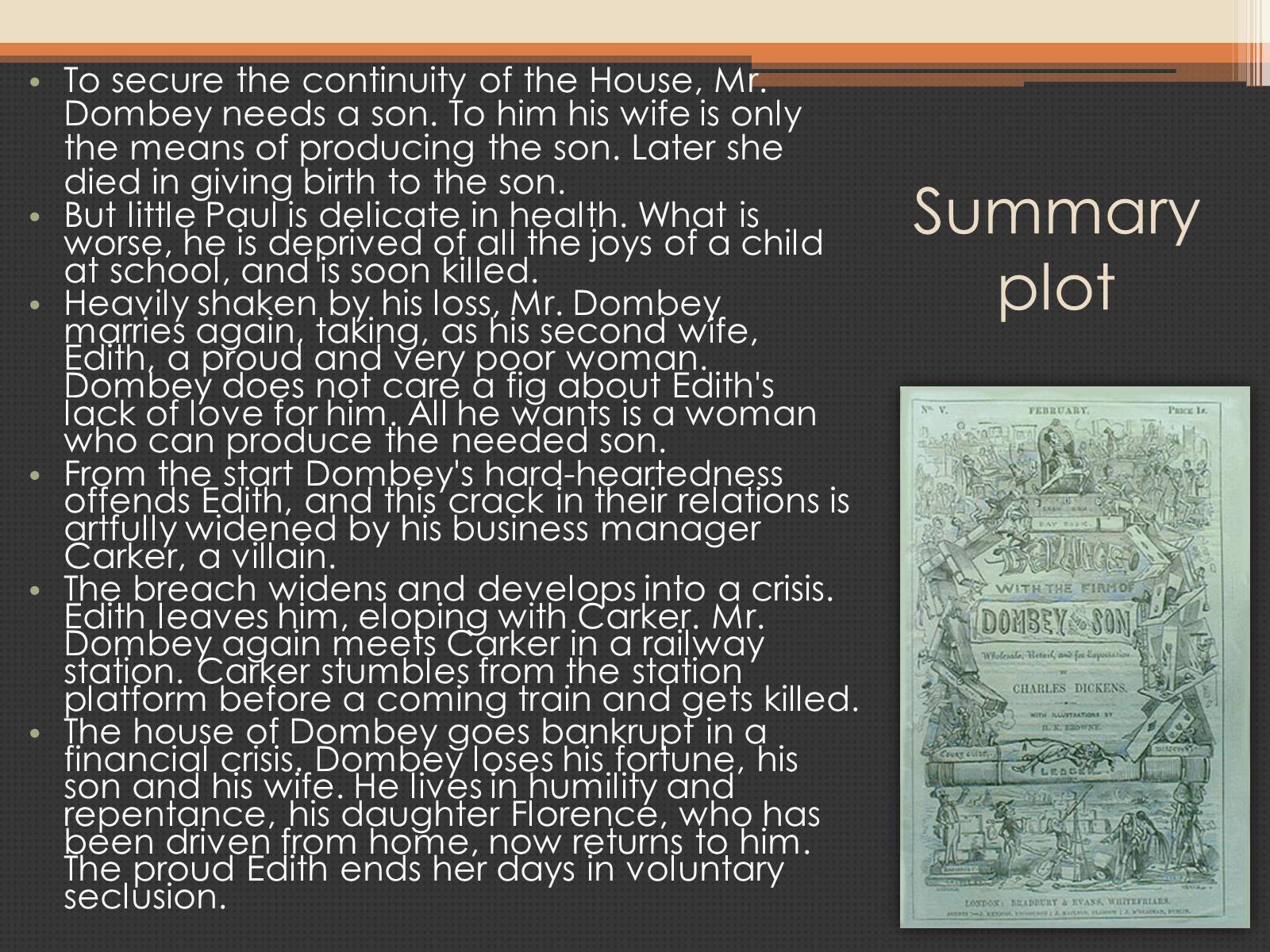
Summary plot
To secure the continuity of the House, Mr. Dombey needs a son. To him his wife is only the means of producing the son. Later she died in giving birth to the son.
But little Paul is delicate in health. What is worse, he is deprived of all the joys of a child at school, and is soon killed.
Heavily shaken by his loss, Mr. Dombey marries again, taking, as his second wife, Edith, a proud and very poor woman. Dombey does not care a fig about Edith's lack of love for him. All he wants is a woman who can produce the needed son.
From the start Dombey's hard-heartedness offends Edith, and this crack in their relations is artfully widened by his business manager Carker, a villain.
The breach widens and develops into a crisis. Edith leaves him, eloping with Carker. Mr. Dombey again meets Carker in a railway station. Carker stumbles from the station platform before a coming train and gets killed.
The house of Dombey goes bankrupt in a financial crisis. Dombey loses his fortune, his son and his wife. He lives in humility and repentance, his daughter Florence, who has been driven from home, now returns to him. The proud Edith ends her days in voluntary seclusion.